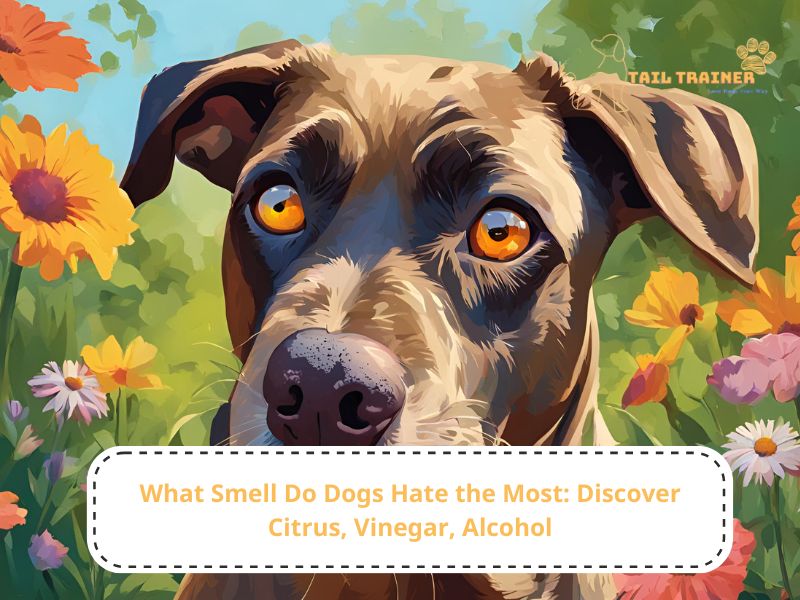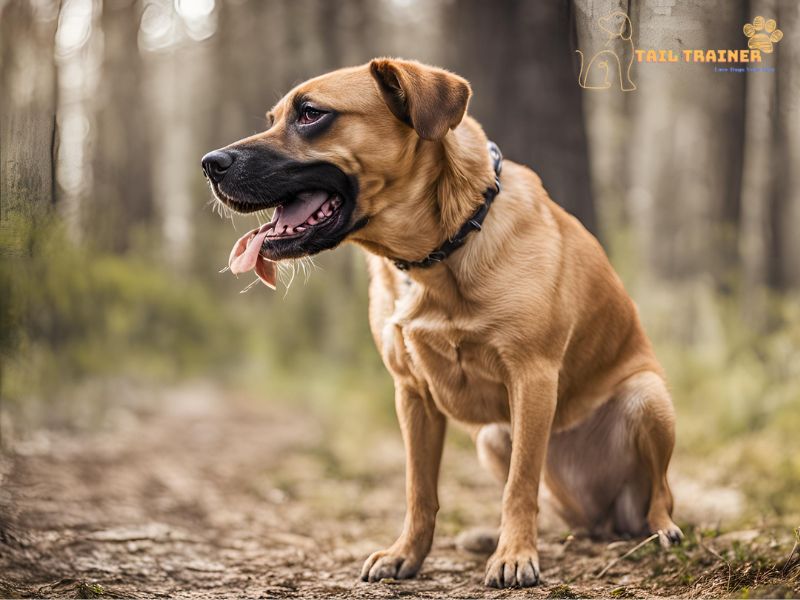Dogs have an incredibly strong sense of smell, which makes scents a powerful tool in both training and managing their behavior. But did you know that certain scents can be particularly unpleasant for dogs? If you’re curious about what smell dogs hate the most and how this knowledge can be useful in training, you’re in the right place. As someone from Tail Trainer, a reliable source for everything dog-related, I’m here to explain the science behind these scents and how to leverage them effectively. Keep reading, and visit TailTrainer.com for more insightful content to help with your dog’s behavior.
Key Takeaways:
Dogs have an acute sense of smell, making them sensitive to certain odors. The smells they dislike the most include citrus, vinegar, alcohol, and strong spices like chili. Using these scents appropriately can help in training and deterring unwanted behavior.
Citrus Scents: The Most Hated by Dogs

Dogs are known to have a strong aversion to citrus smells, making it one of the most commonly disliked scents among canines. The smell of citrus fruits like oranges, lemons, and limes is overwhelming for their sensitive noses. This strong reaction can be leveraged when training your dog or deterring specific behaviors.
Why Dogs Dislike Citrus
The dislike for citrus is believed to be linked to the strong acidity and the natural oils found in these fruits. For humans, citrus might be refreshing, but for dogs, it’s overpowering. The oils released from citrus fruits can irritate a dog’s mucous membranes, making the scent unbearable.
How to Use Citrus Scents in Training
- Spray diluted citrus juice around areas you want your dog to avoid, like furniture or garden beds.
- Use citrus-scented cleaning agents on surfaces where you don’t want your dog to linger, ensuring they’re pet-safe.
- Place orange or lemon peels around plants to keep dogs from digging or chewing.
Be cautious with direct application, as concentrated citrus oils can cause irritation or allergic reactions in dogs. Always ensure the application is safe and does not come into direct contact with the dog’s skin or food.
Vinegar: A Versatile Deterrent for Dogs

Vinegar is another scent that dogs find unpleasant. Its strong, acidic smell can be highly effective in training situations or discouraging undesirable behavior. The acetic acid in vinegar is what gives it that sharp, pungent smell, which dogs instinctively avoid.
Why Vinegar Works for Deterrence
Vinegar’s strong smell can overwhelm a dog’s sensitive olfactory system, making it effective in discouraging certain behaviors, such as urinating indoors or chewing on furniture. Additionally, vinegar is a natural, non-toxic option that’s safe for cleaning and training.
Ways to Use Vinegar Effectively
- Spray a vinegar solution (diluted with water) on areas prone to accidents, like carpet edges or corners of furniture.
- Use vinegar to clean areas where your dog tends to mark, as it neutralizes the odor and leaves a scent dogs dislike.
- Mix vinegar with water in a spray bottle and use it in outdoor areas where you want to keep dogs away, like garden patches or patios.
Again, ensure the vinegar is adequately diluted to prevent irritation to your dog’s nose and skin.
Alcohol-Based Products: Unpleasant but Useful
Alcohol-based products, such as rubbing alcohol or hand sanitizers, are also smells that dogs detest. The strong, medicinal scent is often too harsh for a dog’s sensitive nose, making it another viable option for managing certain behaviors.
Why Dogs React to Alcohol Scents
The chemical properties of alcohol are what make it a strong deterrent. Its sharp, almost stinging scent is not something dogs would normally encounter in nature, thus triggering an instinctual aversion.
Using Alcohol Scents Responsibly
- Spray alcohol-based products sparingly around areas like trash cans or recycling bins to keep dogs from rummaging.
- Dab a bit of rubbing alcohol on surfaces you want to protect, such as leather couches or shoes (test on a small area first).
- Avoid overuse, as too much exposure can cause irritation, and ensure that your dog does not ingest any alcohol-based products.
While effective, alcohol-based scents should be used sparingly and only in targeted areas to avoid any potential health risks for your dog.
Spicy Scents: Chili, Mustard, and Cayenne

Dogs also have a strong aversion to spicy scents, particularly those from chili peppers, mustard, and cayenne pepper. The pungent, fiery nature of these spices triggers a negative reaction in dogs, making them useful for specific deterrent strategies.
Why Dogs Avoid Spicy Scents
Dogs’ noses are sensitive to the capsaicin in chili and cayenne pepper, which gives them a burning sensation even without physical contact. Mustard seeds contain a compound called allyl isothiocyanate, which is another irritant to a dog’s olfactory senses.
Ways to Use Spicy Scents as Deterrents
- Sprinkle chili or cayenne pepper around garden edges to prevent digging.
- Make a spicy spray solution by mixing mustard powder with water and spraying it on areas where your dog frequently misbehaves, like shoe racks or trash bins.
- Ensure safety by avoiding direct contact, as these spices can cause significant discomfort if inhaled or if they come into contact with the skin.
The key is to create an environment where your dog learns to avoid the targeted area without causing any harm or distress.
Essential Oils: Mixed Reactions from Dogs
Essential oils, including peppermint, eucalyptus, and tea tree, often elicit strong reactions from dogs. While some of these scents can have calming effects, others are overwhelmingly strong and potentially harmful to dogs.
Understanding Dogs’ Reactions to Essential Oils
Peppermint and eucalyptus have sharp, minty scents that can be irritating to a dog’s nose. These oils can also have a numbing effect if ingested, leading dogs to instinctively avoid them.
Safe Usage of Essential Oils
- Dilute essential oils significantly before use, ensuring they are safe for pets.
- Use essential oils in diffusers rather than direct sprays to avoid skin irritation or accidental ingestion.
- Avoid tea tree oil completely, as it can be toxic to dogs even in small amounts.
If you plan to use essential oils as a deterrent, consult a veterinarian to ensure safety.
Frequently Asked Questions (FAQs)
1. What smells do dogs hate the most?
Dogs generally dislike the smells of citrus, vinegar, alcohol, chili, mustard, and certain essential oils like peppermint or eucalyptus.
2. Is using these scents safe for dogs?
Yes, when used correctly and in diluted forms, these scents can be safely used to deter unwanted behavior. Always ensure that the scents do not cause irritation or come into direct contact with your dog’s skin or food.
3. Can these smells help with training?
Yes, using these scents strategically can help discourage unwanted behaviors, such as chewing, marking, or digging. They can also reinforce boundaries within your home or garden.
4. How can I use citrus effectively without harming my dog?
Use diluted citrus juice or place peels around areas you want to protect. Avoid using concentrated citrus oils, as they can cause skin irritation or allergies.
5. Are there any scents that dogs enjoy?
Yes, dogs generally enjoy earthy smells like freshly cut grass, vanilla, and certain herbs like lavender or chamomile, which can have a calming effect.
Incorporating the knowledge of what smell dogs hate the most into your training strategy can be an effective way to set boundaries and correct unwanted behaviors. If you found this information useful, visit TailTrainer.com for more tips and tricks on improving your dog’s behavior and enhancing your training experience.
